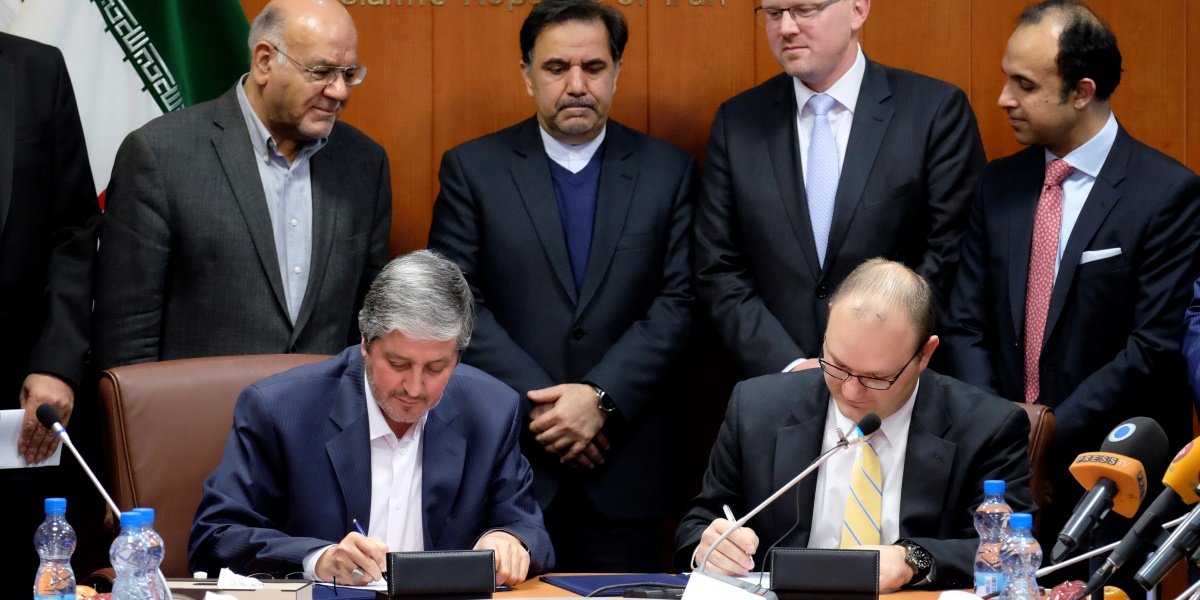Great Expectations and New Challenges for the West
The future seems almost dark for Western values which are under attack by the revival of racism, populism, Islamphobia and xenephobia in societies
More


A Healthy Balance between Russia and the United States
Turkey is not trying to change teams. It is only seeking a healthy balance between Russia and the U.S.
More
The assassination of the Russian ambassador to Turkey cannot be discussed without taking the national, regional and global developments and conjuncture into consideration
Turkish Special Forces took up the challenge and showed the world that they represent the most effective ground force that could fight Daesh in the battlefield
The same people who hailed the PKK as a merry band of revolutionaries might soon have to face the fact that they were in bed with terrorists all along.
Iran looks like the winner of the current regional game, however in the long run, it cannot sustain its policies, the cost of which will continue to rise, politically, militarily and economically
Challenging the Iranian Influence over Iraq
A new balance of power is emerging between Russia and the U.S. as well as among regional powers including Turkey, Iran and Saudi Arabia.
More


Turkey and Russia: from Frozen Relations to Cooperation
The main motive of Turkish-Russian relations is the interdependence in the economy, taking into consideration that bilateral trade between the two countries is quite high.
More
Iran is trying to establish its own area of influence before Trump is sworn in and points to Iran as the main other in the Middle East
The latest political news show that the biggest problem in the West is the increasing trend of populism rather than racism, xenophobia and Islamophobia
The public debate on constitutional reform and presidentialism is symptomatic of broader changes in state-society relations in Turkey
A potential disengagement over the fate of the refugee deal could create additional problems for Ankara and Brussels alike. Moving forward, European leaders have to stop bashing Turkey and cease their support for terrorist groups targeting Turkish citizens
Last week, Tokyo's hosting a convention to discuss the Islamophobia danger is a promising development for a better world
Defining Erdoğan's political vision, which has found a wide response in Turkey, as "ethnic or Islamic nationalism," is a big mistake. Erdoğan's political vision could be described as "civic nationalism" at best.
A quick look at the West's treatment of Turkey over the past decade reveals that Mr. Erdoğan's disappointment isn't some emotional reaction but a structural transformation already underway
The reason for the current situation between Turkey and the EU is not the personal approaches of Erdoğan or European politicians. It has more structural reasons
The EU countries failed to deal with domestic challenges, and the rise of cultural and moral crises
The Gulenist Terrorist Organisation has an international support network. Unlike IS threats of "lone wolves" and its widespread alienation by the public, Gulenists benefit from a certain level of public legitimacy.
The rise of populism on the back of anti-immigrant sentiment and protectionism slowly eradicates the West's liberal credentials
Deep prejudice and the absence of objectivity exhibited by the Western media against Turkey are major problems; but Turkey should never give up in the attempt to remind prejudiced media managers of the fundamental principles of journalism and the simple facts and rules of democracy.
Below the iceberg, Gülenism has a real face, a dark obscurantist zeal for world domination, in terms of its goals, and the path chosen to achieve them contradicts almost everything that is Western. As this Janus-faced structure of the Gülenists unfolds, the interests and ideals of the West will fall apart.

















